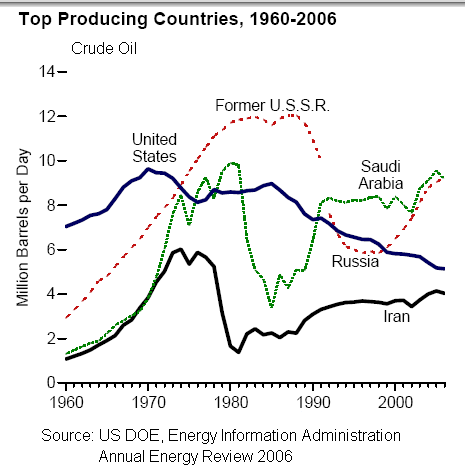This is almost more of an economics question.
The thing is, Oil prices at the time had a much more drastic effect on the US economy than the Soviet one, so you don't really have to look outside of US borders for reasons.
Rising Oil prices were almost single-handedly responsible for getting Regan elected. When oil prices go up, the price of everything in the USA rises due to the vast distances involved in shipping things around our continent. This caused a never-before-noticed effect in the USA economy which they had to invent a new word for: stagflation. Normally unemployment and inflation vary inversely to each other. Eg: if a recession happens, people lose jobs, but inflation drops too. During an economic boom, the opposite happens.
However, during the Carter administration there was a big Oil production slowdown, and the result was both inflation and unemployment got worse. The government didn't much know what to do about this, because their typical solution for one would make the other worse.
Regan got elected because of this, so quite sensibly it was a very high priority of his to stop the Oil slowdown. USSR or no, he'd really like to be re-elected.
I know there's a tendency now to grasp whatever straws available to paint Regan as the cunning genius who brought down the USSR. Having lived through it myself (and watched the guy's press conferences and speeches), I'll tell you it was much more like living through a live action Mr. Magoo cartoon. He may still deserve the credit, but the guy was just trying to drive his car...
